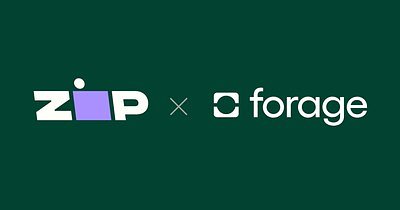
Fintech Steps In as Shutdown Exposes SNAP Benefit Vulnerabilities
A partnership between Forage and Zip offered a temporary lifeline to SNAP recipients during the recent government shutdown, highlighting the growing role of fintech in addressing gaps in the social safety net.
Fintech Steps In as Shutdown Exposes SNAP Benefit Vulnerabilities
WASHINGTON, D.C. – October 30, 2025
A Lifeline Amidst Uncertainty
When the U.S. government shut down in early October, millions of Americans relying on the Supplemental Nutrition Assistance Program (SNAP) faced the prospect of delayed benefits. While a resolution eventually came, the weeks of uncertainty underscored the vulnerability of the social safety net and prompted an unusual intervention: a partnership between fintech companies Forage and Zip. The two firms mobilized to offer a no-fee installment payment option to SNAP recipients, aiming to bridge the gap created by the political impasse. This move, while reactive to the crisis, has ignited a broader conversation about the increasing role of the private sector in addressing gaps in government services and the implications for financial inclusion.
Filling the Void Left by Political Gridlock
The recent shutdown, lasting over a month, proved uniquely disruptive to SNAP benefits. Unlike previous funding lapses, this shutdown caused a significant delay in benefit distribution. According to the USDA, approximately 41.7 million people across 22.4 million households receive SNAP benefits, making the potential disruption substantial. The Forage and Zip initiative sought to mitigate the damage by allowing eligible SNAP recipients to access funds through a short-term installment plan, avoiding the immediate hardship of a missed payment.
“We recognized the urgency of the situation,” stated a source within Forage. “SNAP recipients rely on these benefits to put food on the table. We had the infrastructure in place to offer a solution, and we felt a responsibility to act.”
The program doesn’t directly involve EBT funds; instead, it leverages existing payment rails and credit lines facilitated by Zip. This approach allowed for a rapid rollout, bypassing the complexities of directly integrating with government systems. However, it also raises questions about the sustainability of such a solution and the potential for creating a two-tiered system where access to crucial assistance relies on private credit.
The Rise of Fintech as a Social Safety Net
The Forage and Zip partnership is emblematic of a broader trend: fintech companies increasingly stepping into spaces traditionally occupied by government programs. While this intervention was prompted by a crisis, it raises questions about whether the private sector can – or should – play a larger role in providing social safety nets. “There’s a growing recognition that government systems are often slow to adapt and can be inflexible,” explains a financial inclusion expert. “Fintech companies can offer innovative solutions, but it’s crucial to address issues of equity, access, and responsible lending.”
Zip, a Buy Now, Pay Later (BNPL) provider, has seen rapid growth in the U.S. market, capturing roughly 9.8% of BNPL users. While offering convenience, BNPL services inherently carry risks, and the company’s involvement in this initiative raises questions about credit risk and responsible financial practices. The company’s expansion into this space reflects a strategic move to position itself as a provider of financial solutions for underserved populations. However, critics caution that relying on private credit for essential needs could exacerbate existing inequalities.
Beyond the Shutdown: Long-Term Implications
The Forage and Zip partnership wasn't just about responding to a temporary crisis. The collaboration signals a potential shift in how government benefits are distributed. Forage, with its focus on payment infrastructure for government programs, sees an opportunity to streamline benefit delivery and improve accessibility. The company has attracted significant investment, securing $36.9 million in funding, and is actively working to expand its partnerships with state and federal agencies.
“We believe there’s a significant opportunity to modernize the way government benefits are delivered,” asserts a source at Forage. “We can leverage technology to reduce administrative costs, improve efficiency, and ensure that benefits reach those who need them most.”
However, this vision also raises concerns about the potential for privatization and the erosion of public services. Critics argue that relying on private companies to administer government programs could lead to increased costs, reduced accountability, and a lack of transparency. Furthermore, the potential for data breaches and privacy violations is a significant concern. While states like Maryland and New York allocated emergency funding to help recipients during the shutdown, a reliance on private solutions requires oversight and proper safeguards to protect vulnerable populations.
The recent government shutdown exposed the fragility of the SNAP program and the vulnerability of millions of Americans. While the Forage and Zip partnership provided a temporary lifeline, it also underscored the need for long-term solutions and a more resilient social safety net. The increasing role of fintech in addressing these challenges presents both opportunities and risks, and policymakers must carefully consider the implications as they navigate the evolving landscape of government services.
